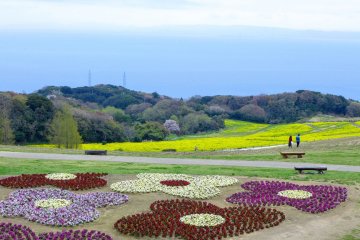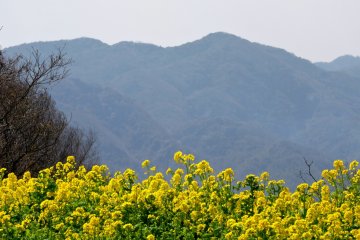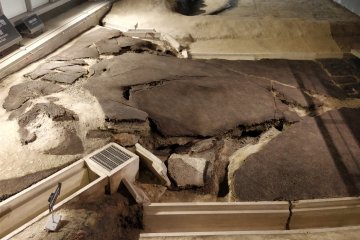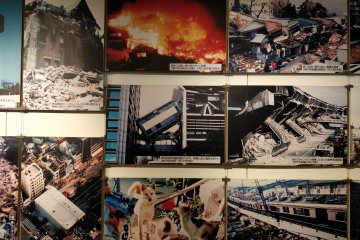I recently moved to Awaji-shima in Hyogo Prefecture and decided to play tourist and visit the Hokudan Earthquake Memorial Park in Ogura with my colleagues.
We had a day to travel around northern Awaji and I took an hour to convince my colleagues to add the park, also known as Nojima Fault Preservation Museum, to the itinerary. They thought that the experience would be creepy and dark, however the presentation of facts stunned everyone.
The Great Hanshin-Awaji Earthquake in 1995 occurred due to the Nojima Fault. At the entrance of the Nojima Fault Preservation Museum, there is a huge replica of the collapsed section of the National Route 43. Also, the detailed maps showing the tectonic line and the photographs of the destruction make one ponder about the importance of disaster management and the unpredictability of living in a technologically advanced country like Japan.
Upon entering, one can see the fault, which is preserved and kept under cover. The cracked road conveys how great the fault activity was during the earthquake. Moreover, the horizontal displacement can be seen from the irrigation ditch to the side of the road. The visitors can simulate an earthquake which exposes the fault to understand about the impact.
To add to it, visitors can hear an earthquake survivor talking about his/ her own experience and giving quake safety tips. We missed out on that as the timings for the storytelling sessions are Tuesdays from 10am-12pm and from 2pm-4pm. On special request, the session can be arranged for a large group too.
In the earthquake experience room, visitors can experience the Great Hanshin-Awaji Earthquake and the Great East Japan Earthquake. The simulation offers an experience that is half the intensity of the real earthquake. People on wheelchairs can experience this too. There is also an audio visual screened here that shows clippings from the earthquake. For more advanced learning, I recommend to visit the active fault lab, which has an educational facility, tsunami simulation video and other demonstrations for those into seismology.
To get a clearer picture of what happened inside houses, move to the area called, “Kitchen after the earthquake”, which has the damage caused by the earthquake reproduced based on the accounts from the witnesses. All the clocks in the facility show time as 5:46am.
To benefit the local community, there is a shop selling local produce like loquats and onions. After shopping, visitors can enjoy a meal at the restaurant with an interesting menu including loquat ice cream, octopus rice with fresh octopus from northern Awaji and tempura conger eel rice.
In all, it was an experience that should not be missed. It costs 700 yen to enter here; 350 yen for disabled people; 300 yen for junior high and high school students; 250 yen for children. Parking is free. There is a group discount for 30 or more people too. I recommend it to young people as we are technologically most equipped to deal with disasters and yet we are highly impacted by their arrival.















